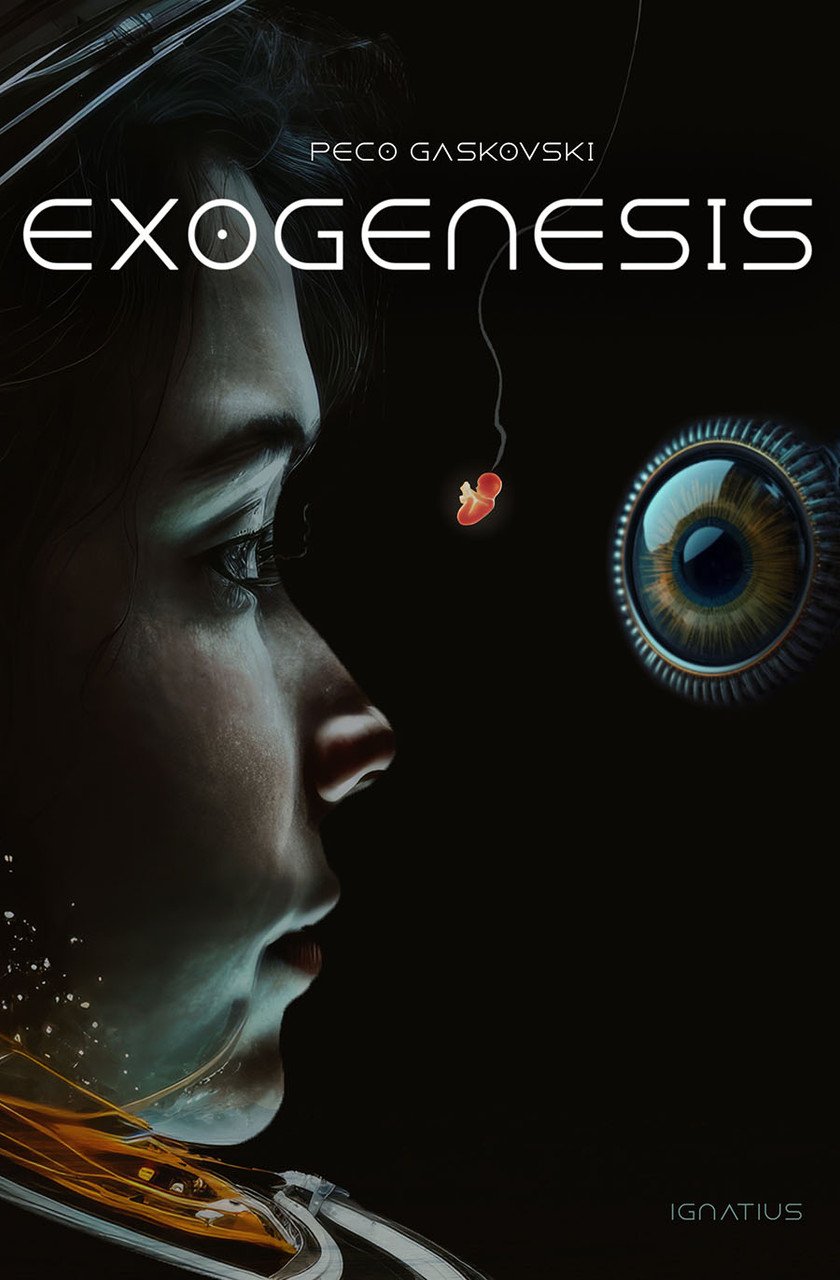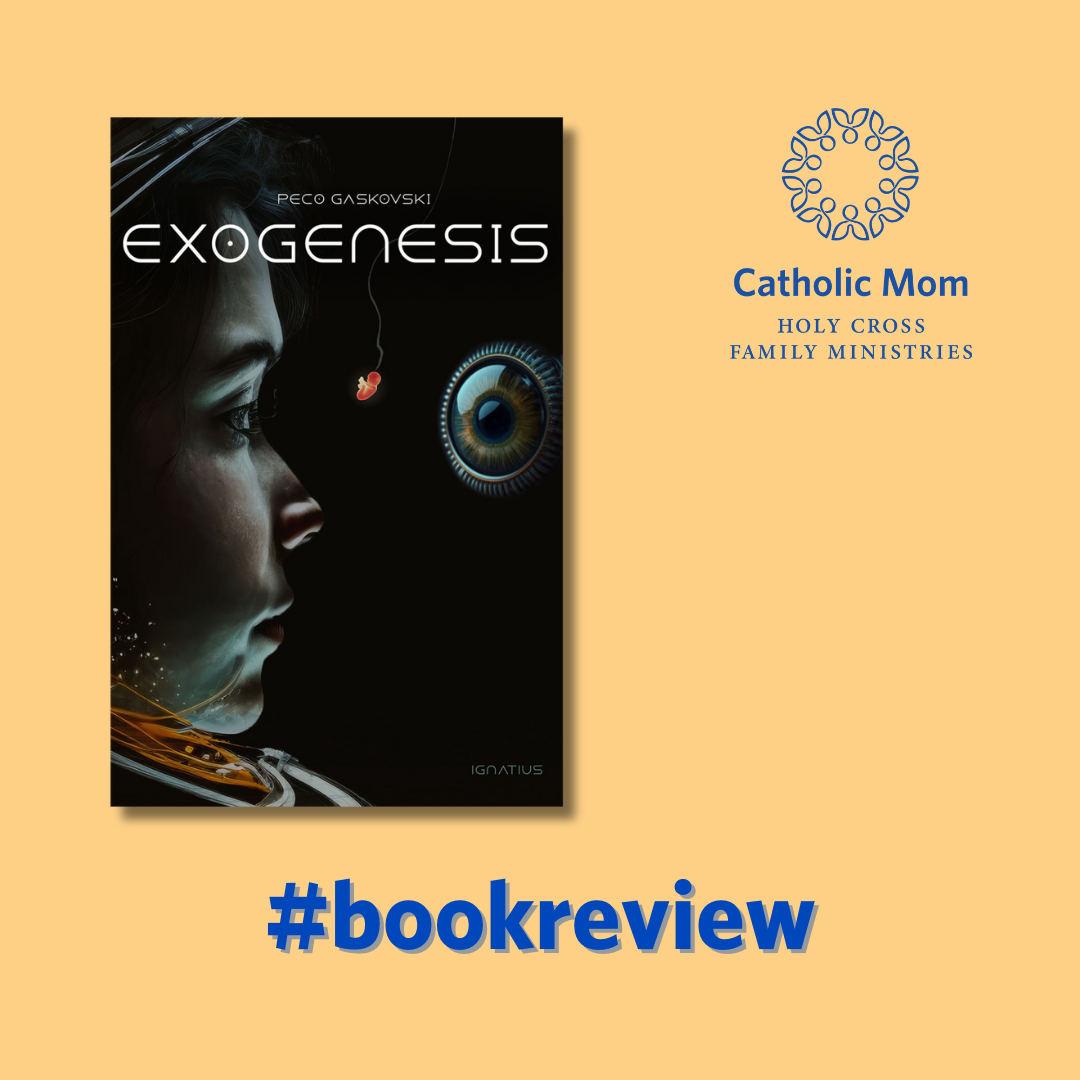
Danielle Heckenkamp reviews a new dystopian novel and explains why fiction from this genre is worth the read.
To read fiction is to step outside of our own constraints and to learn from those who have come before us, those who have learned from difficult experiences, or those who have a taste of the future with the repercussions of an oppressive society. Dystopian literature is built on futuristic scenarios but focuses on an oppressive society. The genre of dystopian literature is “speculative fiction.”
I have a deep appreciation for dystopian fiction, for it is a combination of my love for history, politics, and futuristic scenarios. There are great lessons to be learned from dystopian literature as they oftentimes delve deep into moral and natural law. These works of fiction are not typically designed to release the mind from current oppressions, but to foreshadow more complicated scenarios if society is not diligent in the present times.
In Exogenesis, written by Peco Gaskovski, the reader steps into the broken futuristic Lantua world that replaced the “Old America.” The main conflicts reside in a struggle between several societies/cultures and their interpretation of natural and moral laws. A few groups, who live isolated in agrarian communities, desire the old ways of living based on moral and natural law in line with Christian teaching, while the high-tech “new” Lantua society is built on personal desires, selfish tendencies, and a disregard for sin. Rather, the only consequences in Lantua are sins against the laws of the superficial state.

The symbolism and literary representation in Exogensis are strong as the events take place during the cold of winter, a symbolism for the death of the soul or spiritual dryness. The moral lessons in this book focus heavily on birth, life, death, with especially referencing a more futuristic form of in vitro fertilization, since the Lantuan women are not allowed to birth their own children. The disintegration of the nuclear family, natural birth, caring for children, and the value of life are heavy topics in this book. Though at times it is difficult to reflect on these issues, since they are so prevalent today, it would be ignorant to believe society isn’t far from such a path if it continues without God.
The main character, Maelin Kivela, is a woman striving to fulfill her job, per state laws, of protocoling (sterilizing) young men and women to prevent overpopulation. After a series of events and an introduction of past experiences, Maelin undergoes an internal struggle with the immoral “laws” of Lantua and the meaning of life.
Exogenesis exhibits drastic character development to the internal and external moral law struggles against society, nature, and self. The resulting outcome of these conflicts, and the character development of Maelin, leaves the reader with a sense of peace and God’s justice. With a deep appreciation for dystopian literature, I highly recommend every adult to read this book as it touches upon the consequences of flippant decisions that are often made in today’s world and the implications of such decisions for future generations.
Ask for Exogenesis at your local Catholic bookseller, or order online from Amazon.com or the publisher, Ignatius Press.

Copyright 2023 Danielle Korvemaker
Images:
This article contains Amazon affiliate links, which provide a small compensation to the author of this piece when purchases are made through the links, at no cost to you. Thank you for supporting our Catholic Mom writers in this way.
About the Author

Danielle Heckenkamp
Danielle Heckenkamp is a stay at home mom and freelance writer who lives in Wisconsin with her husband and six children. Danielle writes about her daily experiences as a mom and love for her Catholic Faith. Danielle is the co-author of a nonfiction book about manners and common sense. You can step inside Danielle s daily life on Instagram.


.png?width=1806&height=731&name=CatholicMom_hcfm_logo1_pos_871c_2728c%20(002).png)
Comments